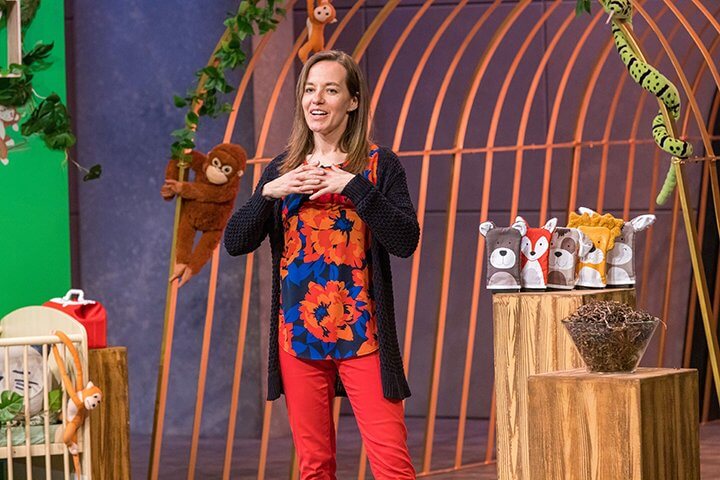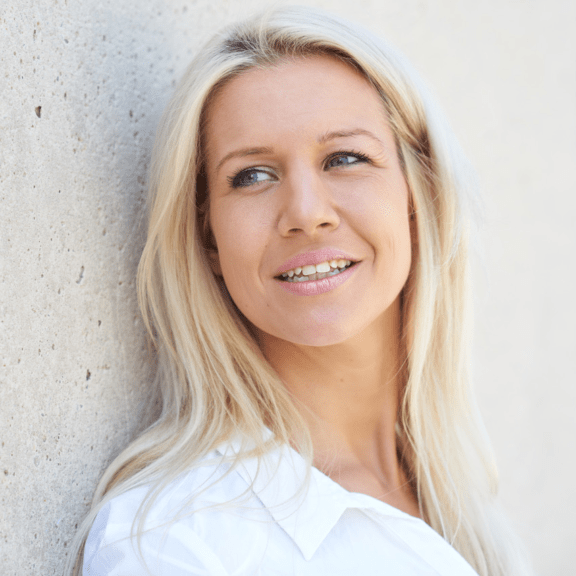BIOTherma-Pad: Is there a „wrong phase“ for finding investors? #DHDL
Founder Friederike Freifrau von Rodde ventured before the lions with her BIOTherma-Pad. However, she had to admit that the product was not yet ready. How can you still convince investors, even if you're a bit early?
Donnerstag,
12.10.2023

The prerequisites were actually not the worst, because the story of how the BIOTherma-Pad came into being is one of the kind that investors usually like to hear: Founder Friederike Freifrau von Rodde is a mother of several and often made use of the usual cooling or heating pads with gel filling for her children’s minor injuries. Once, however, one burst open, so she set out to find out what was actually in it and how dangerous it was if she or her children came into contact with it or even swallowed some of it. Her findings about industrial alcohols and antifreeze did not reassure her at all, so she set out to develop an alternative to finally bring environmentally friendly and non-toxic cooling and heating pads into households.
She finally went before the lions with the result, and investors like founders who have solved their own problem. Because where someone has a problem in everyday life, they are usually not alone, and especially a parent who is worried about the health of their children when it comes to certain things is usually far from the only one. So the chances are good that a sensible solution will also meet with other interested parties.
But it is not only the origin story itself that bodes well, the pitch is also excellently structured and delivered. The founder uses a structure that ensures that the audience can easily absorb what is being said and is also happy to follow emotionally, which is why persuasion expert Daniel Pink recommends it for all kinds of pitches. He calls it the „Pixar structure“ because the structure corresponds to the flow of the stories in the famous films: „Once upon a time…“ introduces a situation, „Every day…“ describes an everyday situation. „Until one day…“ then an unusual occurrence happens, whereupon usually the hero or heroine does something, which is introduced with „Because of this…“. Here, this is research into the ingredients of a conventional money pad, which then leads once again to the development of a less dangerous product, and indeed in this structure there is also another „Therefore…“ to finally introduce the final goal or „Happy End“ with „Until finally…“.
The Therma-Pad is not that far along at this point, but you can clearly see the lions‘ interest. However, Dagmar Wöhrl then asks the founder where exactly she stands at the moment, which unfortunately introduces a kind of turning point. Because the product is not yet completely ready for the market, even though a professor of environmental biology is involved in the development who is sure that it will work.
Janna Ensthaler, Dagmar Wöhrl and also Carsten Maschmeyer then soon drop out, mainly because this situation and also the constellation with licence fees probably due to the co-developer is too uncertain for them.
In fact, such a phase in the consumer goods sector is often rather unfavourable for approaching investors. This is because they usually want to see a finished product – or at least one that can already be tested on the market to a certain extent. The main reason for this is that many things can still go wrong in the development phase: the desired properties may not be so easy to achieve after all, or the ingredients may still have to be changed, which can completely upset the price structure – especially in the current times, when certain raw materials are subject to enormous price increases, this risk should not be underestimated. For many investors, therefore, such a phase is actually a reason to exit, and outside the cave the famous phrase „It’s still a bit early for us, but let’s stay in touch“ is then often uttered. Which is of course not completely negative, but at a moment when you need money for product finalisation, it doesn’t really help either.
But the founder still has a lot to offer, which is not the case with most start-ups in the development phase: Her product not only consists of the gel pad, but she also wants to sell it in a bundle with the fabric covers, which are especially suitable for children. These are not only royalty-free, but are also produced in her own socially and sustainably working textile factory. So she has already proven that she can build and manage a business – a huge advantage from an investor’s point of view. Moreover, the two parts of the business model – one easily manufacturable but not protectable, the other probably patentable but not yet ready and with possible fluctuating manufacturing costs – hold a certain chance of balancing each other out a bit.
This is how two investors finally managed to make an offer – Tillmann Schulz and Nils Glagau, exactly the two who can also support the development with their own resources in the face of the greatest risk factor.
After the founder also has to wrestle with herself to come to a decision, they even give up their competition and join forces, so that Friedrike not only gets the desired 60,000 euros for 30% instead of the 20% originally offered, but even two new partners.
So in order for there to be a happy ending in the early phase of investor negotiations, there are definitely a few influencing factors that one should be aware of. First of all, founders should realise that where the risk is high, factors are needed to mitigate it. Is there, for example, a highly qualified team member who can significantly reduce the risk of a wrong development? Or is there experience in management and founding? Or is there special access to resources or production that guarantees a certain stability in critical procurement parts? Unfortunately, visions of the future and enthusiasm for one’s own product are of little help here; what is needed here are facts that are as hard as possible and can be proven in some form.
If you discover factors on the part of the investor that enable him to counteract his risk to some extent, for example, that he has decisive expertise that can provide strong support in the development, you can also raise the issue yourself.
This time, the lions themselves did it in the cave, but the founder also followed up here. Once again, a good demonstration that negotiations with investors should primarily be a conversation about future cooperation, and not a tough negotiation with a strong authority differential. And although the two lions did not make the deal in the end, all signs point to a „happy ending“ for Friederike and her Bio Therma-Pad… or rather a „happy beginning“.
Photo (above): TVNOW / Bernd-Michael Maurer

Ruth Cremer
Ruth Cremer ist Mathematikerin und Beraterin sowie Hochschuldozentin auf dem Gebiet der Geschäftsmodelle, Kennzahlen und Finanzplanung. Als ehemalige Investmentmanagerin weiß sie, worauf Investoren achten und hilft auch bei der Pitch- und Dokumentenerstellung im Investitions- oder Übernahmeprozess. Seit 2017 ist sie als externe Beraterin an der Auswahl und Vorbereitung der Kandidaten in "Die Höhle der Löwen" beteiligt.
